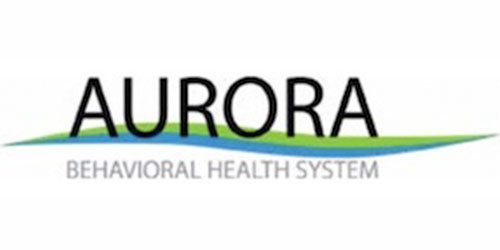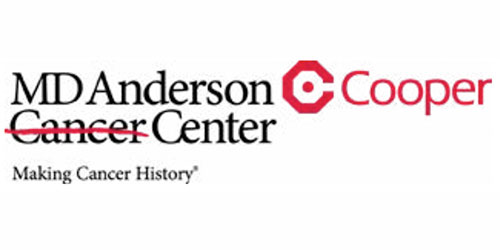About Sentara Health
Sentara Health, an integrated, not-for-profit health care delivery system, celebrates more than 130 years in pursuit of its mission – “we improve health every day.” Sentara is one of the largest health systems in the U.S. Mid-Atlantic and Southeast, and among the top 20 largest not-for-profit integrated health systems in the country, with 30,000 employees, 12 hospitals in Virginia and Northeastern North Carolina, and the Sentara Health Plans division which serves more than 1.2 million members in Virginia and Florida. Sentara is recognized nationally for clinical quality and safety, and is strategically focused on innovation and creating an extraordinary health care experience for our patients and members. Sentara was named to IBM Watson Health’s “Top 15 Health Systems” (2021, 2018), and was recognized by Forbes as a “Best Employer for New Grads” (2022), “Best Employer for Veterans” (2022), and “Best Employer for Women” (2020).
Background
In Sentara’s cancer facilities, Oncology Nurse Navigators play a crucial role in assessing patients’ barriers to care. They have identified transportation as the single most common barrier to patients receiving necessary care. Recognizing the importance of addressing this challenge, Sentara sought to connect cancer patients experiencing transportation barriers with the necessary transportation support.
To be considered eligible for receiving ride support, Nurse Navigators assess the following patient factors – Does the patient have access to a ride through their family or friends? Does the patient have access to transportation through their insurance? Does the patient fall within a certain economic bracket and other criteria that makes him/her eligible to receive transportation assistance? If the patient is deemed eligible, Sentara arranges transportation and covers the cost, or taps into a community of volunteer drivers.
Challenge
Previously, the process of ordering rides for patients who qualified to receive ride support was inefficient and time-consuming. Oncology Nurse Navigators spent approximately 15-20 minutes booking each ride, using a fax-based method to communicate ride details to taxi companies. This approach posed several challenges:
- Communication issues: Taxi companies often reported not receiving faxes, leading to redundant communications and delays. Alice Crandall, Oncology Nurse Navigator at Sentara CarePlex Hospital, notes, “I would create master copies of my patients’ transmittals – then those transmittals had to be emailed or faxed to the taxi company. About 60% of the time, they’d say they didn’t receive it, so then I’d have to refax it.”
- Lack of flexibility: When a change to a ride reservation was needed, such as a change of appointment time, Nurse Navigators had to complete the entire faxing process all over again. According to Savanna Gerber, Oncology Social Work at Sentara Virginia Beach General Hospital, “If you needed to change anything about a ride, it wasn’t just a couple clicks on a computer screen. I had to fax an entire brand-new sheet with the updated information.”
- Complex scheduling: Arranging rides for patients with varying treatment schedules, especially for recurring appointments, was challenging and time consuming.
- Lack of transparency: There was no real-time visibility into ride status leaving Nurse Navigators and their patients unclear of when a ride was arriving.
- Administrative burden: Booking rides consumed valuable time that could be better spent on patient care and education. According to Alice Crandall, “There was just a lot of paper pushing. My role really is education, so it took a lot of time away from that, and that’s what frustrated me.”
- Patient Impact: Patients would be stranded at the completion of their appointments without scheduled transportation or a caregiver to take them home. Having this burden on the patient was taxing to their mental and physical state.
Solution
In October 2021, the Sentara Cancer Network secured a $70,000 grant from the Hampton Roads Biomedical Consortium, enabling the organization to implement a grant-subsidized program for qualifying patients who met hardship criteria utilizing Roundtrip’s software to enhance patient transportation. Roundtrip streamlined the ride booking process and provided access to a community of transportation providers offering a variety of different vehicle types: rideshare, medical sedan, taxi, stretcher van, and wheelchair.
The pilot program took place from January 1 to July 31, 2022 and facilitated 851 rides for 90 oncology patients. Within the first month, participating Oncology Nurse Navigators found the Roundtrip platform to be a more efficient solution compared to the previous coordination process, and this persisted through to the pilot program’s final month. When the grant funding was depleted, Sentara made the decision to continue using Roundtrip, allocating additional resources from grants and philanthropic funds to ensure the sustained provision of transportation assistance through the Roundtrip platform.
Impact
The implementation of Roundtrip yielded substantial benefits:
- Positive Staff and Patient Reviews: Sentara’s use of Roundtrip for transportation services has received overwhelmingly positive feedback. Out of 112 patient reviews, 95.5% gave their service a 5/5 rating, showing high patient satisfaction. Additionally, 12 of Sentara’s Oncology Nurse Navigators who were surveyed showed strong support for the program. They averaged a 4.5 rating when asked if they would recommend the Roundtrip platform.
- Efficiency & Convenience: Booking rides now takes under 5 minutes, freeing Nurse Navigators from time-consuming administrative tasks. According to Alice Crandall, “I don’t have to worry about coming back to my office and changing a paper and faxing it [ride requests]. Now I can just sit at my desk, enter the [patient/ride] information, and then it [Roundtrip] updates you in real time after you’ve booked the appointment… It’s like a one stop shop.”
- Flexibility: Setting recurring rides and modifying existing ones is now as easy as a few clicks of the button. According to Savanna Gerber, “If there are changes to the schedule, it’s so much easier just to go into the computer quickly and change the times in the [Roundtrip] portal. Also, if there is a missed connection [between a rideshare driver and a patient], I can easily log into the portal and quickly send in a new request.”
- Visibility: Real-time notifications provide transparency into ride status, allowing for Nurse Navigators to perform timely interventions if needed. Additionally, patients can receive text message notifications, enhancing their awareness and readiness for pick-ups and drop-offs.
- Reporting: Administrators can access detailed reports showing information on the rides scheduled and completed, as well as ride reason, ride type, and more. Arkeisha Smith, Patient Experience Consultant at Sentara’s Brock Cancer Center, notes, “We don’t have to call somebody or send five different emails to try to figure out reports, which I love. I’m able to go in [to Roundtrip] and pull [data on] how many rides we did last month, the average cost, where the rides came from, and where the no shows were.”
Conclusion & Looking Ahead
The implementation of Roundtrip for booking and managing rides for oncology patients with transportation barriers has notably enhanced efficiency and reduced administrative burdens for Sentara Health. The Roundtrip platform provides Nurse Navigators with real-time transparency and the flexibility to adjust rides as needed. Positive feedback from staff and patients underscores the program’s success. Looking ahead, Sentara is exploring opportunities to expand its use of Roundtrip to additional departments outside of oncology. Arkeisha Smith notes, “Being that our patient population is immunocompromised and in a challenging situation, just taking that one burden off their plate – having a ride – impacts their quality of life and their quality of care.”


